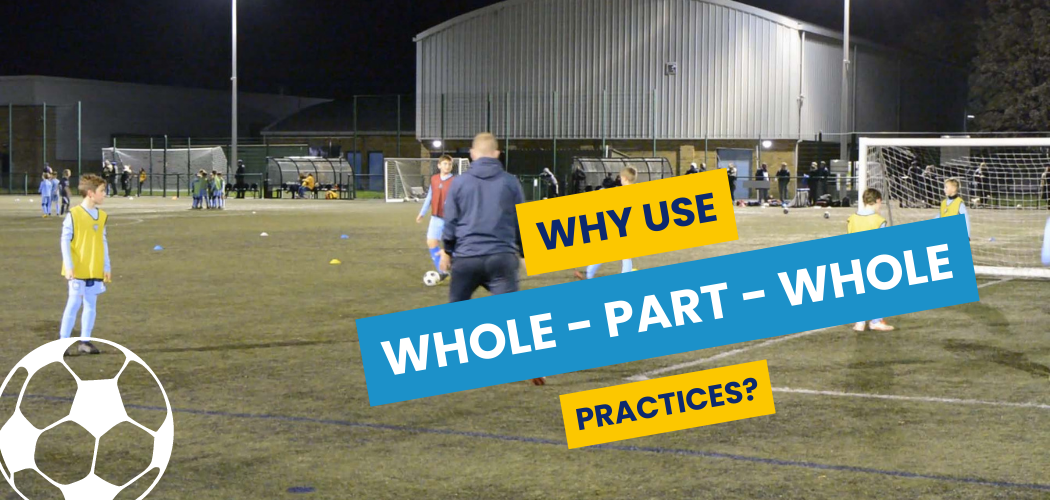You can either watch the video or read the blog below
Football is one of the richest sports in the world, with huge amounts of money generated and paid out at the top of the game. Many of these figures offend people and a lot question why footballers are paid so much? Personally, I don’t have a problem with this, ultimately a footballer is an asset to an organisation and they are paid based on their perceived worth to that organisation.
But something that has come to the forefront is how the money paid at the lower end from clubs to roles such as coaches, analysts and physio’s is extremely low, to the point that is offensive to some.
Recently an advert on twitter for a goalkeeper coach at a professional club was being advertised with an hourly rate of £10 per hour, this is also a London based club, which means you would expect the wages to be slightly higher than other parts of the country.
The qualifications needed for this role
- Goalkeeper UEFA B Licence
- UEFA C
- Youth Mod 1 & 2
- Level 1 first aid
- FA Safeguarding
- Previous experience of coaching girls or at an elite level desirable
- Be able to travel independently.
When you consider having a goalkeeper UEFA B licence, this means you also need the outfield UEFA B as well. Based on current costs (this is a rough estimate of what you spend to achieve the qualifications).
- Goalkeeper UEFA b (£960) plus outfield UEFA B (£960)
- FA Level 2 (£500)
- FA Level 1 (£160)
You are looking at spending more than £2’500 on these qualifications as well as the years of time, effort and commitment it will take to achieve them. You won’t achieve these without extensive development of your own knowledge, which again takes time and a lot of volunteer hours.
So why would anyone go through all this effort to get themselves into a job that pays £10 per hour? The indication is also that you will have to do your own driving to and from training and games, in my experience (but I don’t know for sure in this role) your travel time or expenses are unlikely to be paid.
Surely, nobody will apply? I actually think they will have a huge amount of people apply and this is the reality of what always happen with these jobs.
You will also see on social media lots of roles in football that require a degree or a high level of qualification, that don’t even offer any pay and just internships, which again get flooded with applications.
Lots of people are so desperate to be involved in football that clubs don’t need to pay good money for these positions. Also, there are many coaches who get involved because they want to make it to the top of the game. In my opinion this is possible, but takes more sacrifice than most are willing to make, but I will leave that one for another day…
The reason for this blog is not to complain, but to discuss the potential long term consequences of this…
Firstly, you are losing more and more coaches from the game, as coaches have more responsibilities in their life such as family, mortgages and the commitment their main job takes, meaning they are dropping out of the game. You are losing lots of great coaches as the strain is getting too much on them. They are then being replaced with younger coaches, many of who are excellent and ambitious coaches, but who have less commitments in their life currently. But now even these younger coaches are coming in to the industry and dropping out within a couple of years due to the finances. So, will there be a tipping point that clubs can’t recruit coaches? This will then effect their ability to run their academies and produce players. Now you can argue that not many academies don’t produce players for their own first teams, but ultimately academies do a lot of great work and players trickle down the pyramid to a level they can play at.
When we reach this tipping point, it will have to go one way or the other, clubs will either need to pay more for staff at this level, or they will close their academies and take away a great learning environment for players across the country. Which way it will go I don’t know…
Secondly, you are losing coaches from the game who have great knowledge and experience and this will effect the standard of coaching across the coaching. Another argument may be that you are bringing in coaches with new ideas and concepts, with lots of ambition, which is great, but in my experiences when you work with coaches who have more experience you can pick up lots of knowledge from them and then adapt your own coaching style based on the what you want to take from them. If you are losing all these coaches and coaches coming in to the game are only there for a few years, I believe the standard of coaching will ultimately start to drop.
The third consequence of this, and on that I have lots of first hand experience of, is that coaches drop out of the professional game and then work privately for themselves or with organisations like TSC that I run. We pay coaches a higher wage than many pro clubs offer as well as more hours, so they still get to work full time in sport and with coaching, but can earn a decent living from this. Our first two franchises recently bought their own house and had no problem getting mortgages from their full time jobs with us, this would be a lot more difficult working on wages most pro clubs offer. This opens up another debate about these coaches who get criticised for “ripping people off” but are full time professional coaches who offer a service to people who want to play football and be coached properly. But again, I will save that debate for another day.
Finally, will coaches who work in these environments just do it for the passion of being involved in football and for the love of the game, rather than consider it as a serious career?
I must say that my personal experiences working for a pro club were very positive, I learnt a lot and it really helped with my own personal development. It also helped me create a network of coaches who I remain in touch with and call friends to this day. I have also had the opportunity to work with many players who are now finding their level in football, some professional and some semi professional. There is a huge sense of pride when you see a player you have worked with out on a pitch playing to their potential. But fortunately I didn’t need the wages from the role and it was a passion project for me that I wanted to do for 8 years until my business and family commitments took priority.
What I will say is my experiences and network, as well as what is seen on social media adverts for jobs, is usually out of the scope of the big premier league and Category 1 clubs, who I do believe offer decent wages and roles for coaches, so some may disagree with what I have written above. But I am more interested in debating what will happen to coaches/coaching if low wages continue to be paid by professional clubs throughout the game, as well as how much talent will we lose which will ultimately improve football throughout the country?
Want to add your thoughts? Let me know what you think in the comments or follow me on the below social media channels.
Join the TSC Coaches Club Community for free coaching sessions, coaching advice and blogs.




